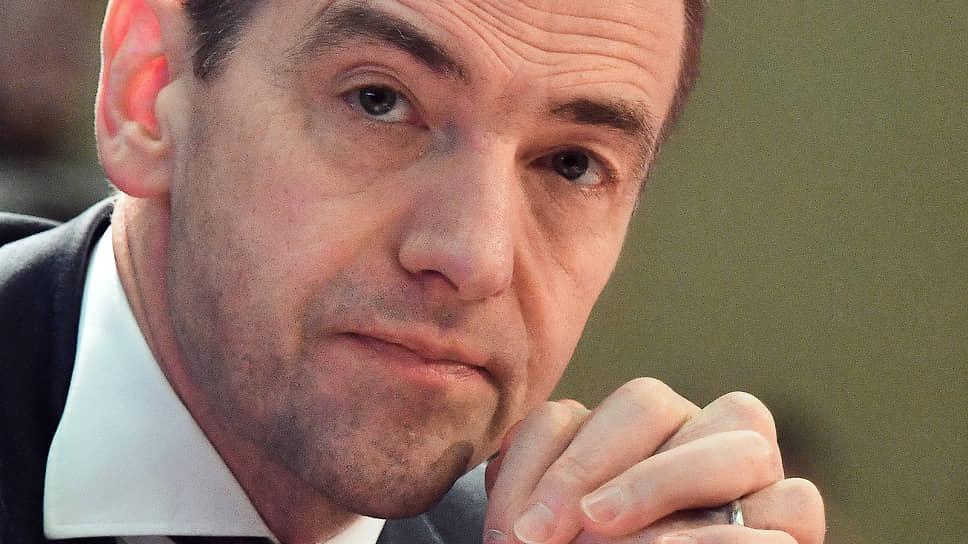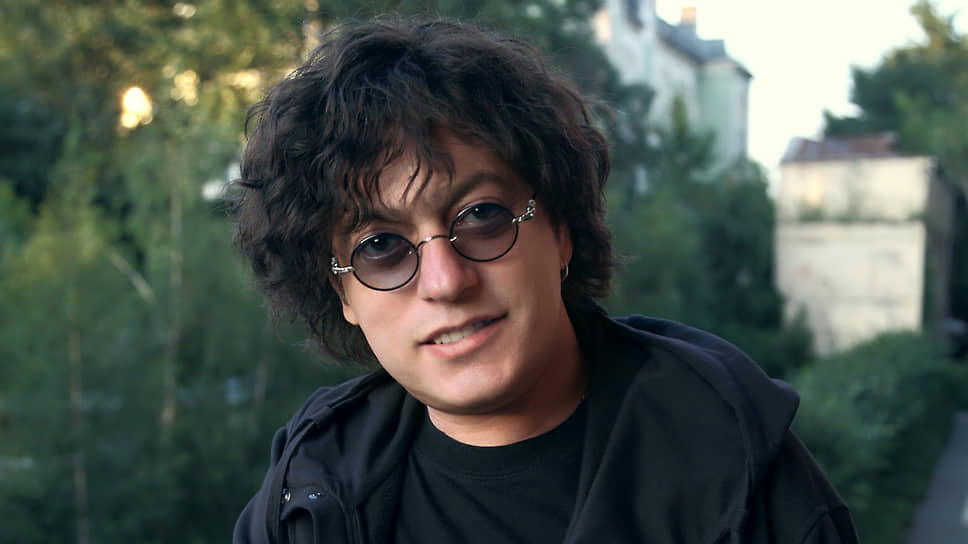Street retail of the era of Moskvoshveya – Newspaper Kommersant No. 224 (7425) dated 02.12.2022
[ad_1]
The wave of store closures of global fashion brands that began in the spring led to a surge in the activity of Russian brands. Their number in large shopping centers has grown by a third, dozens of stores of young local brands have opened in Moscow street retail, and, for example, the Gloria Jeans chain has expanded by 70 outlets at once. But the expansion of local brands has a limit – it can be narrowed not only by a drop in purchasing power amid rising costs and difficulties with the supply of materials, but also by a limited planning horizon for retailers.
In 2022, there has been a surge in store openings for Russian fashion brands, according to a Fashion Consulting Group (FCG) review. According to preliminary estimates of experts, the number of local tenants in large shopping malls in Moscow has increased by 20-30%. And on the central streets of the city, several dozen outlets have opened, including brands from other Russian regions and brands that were previously only available online.
Evgenia Khakberdieva, Regional Director of the Department of Retail Real Estate at NF Group, names the Moscow shopping centers Afimall and Aviapark as leaders in opening new brand stores. The Telegraph department store began to operate in Afimoll, where mainly Moscow designers are represented, and part of the space of the Spanish Inditex was occupied by Blind chicken shoes, women’s clothing brands Emka, 2Mood, Mavelty and Charuel, You. In Aviapark, a Lime chain store was opened in a new format, an expanded Street Beat, The Blue Store, Mie, NOMI, Loloclo outlets.
According to Anna Lebsak-Kleymans, CEO of FCG, the departure of a number of foreign players makes it possible to draw the attention of buyers to new brands, and the latter, in turn, allows them to claim successful locations on conditions that were previously unavailable. But so far, with the exception of individual large companies, in most cases, the opening of stores of Russian brands are calculated in units.
Signage change
According to NF Group estimates, after the outbreak of hostilities by the Russian Federation in Ukraine and a new wave of Western sanctions, 15 major foreign brands announced their withdrawal from Russia, of which about ten belong to the fashion segment. Among them are H&M, Jacquemus, Victoria’s Secret, Sandro, Mothercare, Nike and others. H&M had the largest number of stores. The company operated almost 150 outlets in Russia, 80% were closed at the end of November.
Some brands, like Uniqlo, have suspended work, but have not announced their departure, and some have opened under new signs. Thus, the points of the Polish LPP Reserved, House, Cropp, Mohito and Sinsay began to work as RE, CR, M, “Sin”, “Xs”, the CCC brand became Obuv. The Mango network in Russia has become a franchise.
The transformation of the Russian fashion market continues. Inditex has announced plans to sell the local business, which includes more than 500 stores, to Emirati-based Daher. And the Russian distributor of clothes and shoes Jamilko may buy out the Mothercare chain.
Indira Shafikova, managing partner of RedStone, notes that many brands are in no hurry to leave the Russian Federation: “Revenue per square meter here was often higher than in Europe.” In addition, the expert admits, some owners of shopping centers, where there are still closed stores of chains that have suspended work, “keep them waiting for the return of tenants.” Although, he emphasizes, a long idle store “negatively affects traffic, the work of neighboring outlets and the reputation of the owner.”
In terms of the number of new openings, Gloria Jeans is probably the most active on the market. The head of the board of directors of the company, Vladimir Melnikov, says that this year it has launched 70 stores. At the end of 2021, the company had about 640 outlets: “We managed to start a dialogue with the owners of shopping centers in time after the statements of foreign fashion brands about leaving.” Gloria Jeans plans to take over “separate space” from H&M, Zara, Marks & Spencer and Adidas, he said.
Melon Fashion Group (brands Zarina, Befree, Sela, Love Republic) decided to increase the format of stores and expand the product matrix. So, for the first time in Zarina, clothes for men appeared, in Love Republic – a sports line, shoes and underwear, in Sela – things for babies up to two years old, the men’s collection returned.
Traffic thinning
However, says Anna Lebsak-Kleymans, companies have to take into account the decrease in purchasing power, the complication of competition against the backdrop of parallel imports and rising costs. Thus, according to her estimates, in physical terms, the demand for clothing and footwear in Russia in 2022 may be reduced by 15%. “Risks increase the uncertainty of the prospects for a period of three to five years. Any major investment project is based on the need for medium-term and long-term planning, which is extremely difficult in the current situation,” adds the expert.
According to Focus Technologies, the number of buyers in fashion retail outlets in January-November fell by 12% year-on-year. Their turnover increased by 9% against the backdrop of a 23% increase in the average check, analysts calculated. The strongest decline was observed immediately after the outbreak of hostilities in Ukraine: in March-May, attendance at clothing and footwear stores lagged behind last year by 30%, while in November it was only 13%. At the end of November, the turnover of fashion retail in Russia was already 3% higher than last year, and the average check – by 2%.
Mikhail Vasiliev, head of research and consulting at Focus Technologies, believes that the dynamics are largely due to a decrease in the level of competition and a narrowing of choice for the end consumer: “The increase in the average check, in particular, does not mean an increase in purchases in physical terms, but is largely due to rising prices” .
Against this background, the opening of new stores did not seem like an obvious idea to all Russian clothing brands. Oleg Voronin, owner of I Am Studio, says that his company has focused on developing online sales and expanding its wholesale network. He explains that due to interruptions in the supply of fabrics and accessories, complicated by the payment process, the output of his collection was reduced by 20%. The year as a whole, according to Mr. Voronin, “turned out to be difficult for retail.”
Competition goes online
Going online has become a popular strategy to respond to shrinking markets and rising costs. In the first nine months, the turnover of major Russian brands on Lamoda grew by 60%, said Victoria Abdrashitova, director of development at the company. In April, the platform also launched a Showroom section, which brings together young local brands whose sales more than quadrupled in a year, she said.
Ozon Business Development Director Iloanga Ershova also speaks of the growing interest of Russian brands and manufacturers in working with the platform. According to her, local brands already occupy a significant part of the assortment (the top manager does not disclose specific figures).
Wildberries notes that the range of Russian clothing and footwear on the site has doubled over the year, and the number of sellers has almost tripled. Now Russian designers occupy 51% of the segment against 46% a year earlier.
More than 80 local brands are represented in Yandex.Market. Local manufacturers occupy the largest share in the footwear segment along with Italian ones, and in clothing they also compete with German players, they say.
However, competition is also growing faster on online platforms. Lamoda is “trying to work more with brands from China and Turkey.” Turkish Travel soft, Art Bella, Butigo appeared on Wildberries in autumn. The surviving sales of outdated brands also moved there, from stocks or through parallel imports. So, Victoria’s Secret and Uniqlo items appeared on Lamoda. Wildberries talk about “having contracts with most of the major global brands.”
Dubious Alternative
The head of the CORE.XP retail department, Marina Malakhatko, doubts that Russian brands can now be considered a full-fledged alternative to departed foreign players. Olga Antonova, head of the commercial real estate department at the Commonwealth Partnership, is more positive. She claims that, for example, the 12storeez, Lime, Love Republic and Gloria Jeans networks are “liked by consumers”, and their revenue per 1 sq. m is comparable to major foreign players.
According to Ms. Antonova, in 2023, “new notable networks of Russian brands will appear on the market.” Ms. Malakhatko agrees that in the next six months, local networks “will continue to be interested in the vacated areas.” But, the expert clarifies, “the high cost of loans, difficulties with logistics, the purchase of raw materials will limit the process.”
Oleg Voronin plans to open new brand stores in 2023, but warns that “everything depends heavily on the general market situation.” He sees no technical difficulties: “equipment and materials are still on the market.” Vladimir Melnikov planned to launch 130 stores and upgrade existing ones in 2023. Melon Fashion Group expects to increase the network from 850 to 1.35 thousand stores in three to five years.
Evgenia Hakberdieva emphasizes that growth opportunities are limited: mid- and small-level designers are generally not well versed in business process management. Meanwhile, new foreign players are gradually appearing on the market. According to Marina Malakhatko, already this year seven foreign brands, mostly Turkish, like Ipekyol, Machka, Twist, came to the Russian Federation, working through local partners. Olga Antonova notes Chinese Li-ning’s plans to open three stores.
Of course, Ms. Malakhatko clarifies, new brands will not immediately create serious difficulties for Russian players: no one enters the market with investments at the click of a finger, the process takes an average of three to five years, the minimum period is a year. In addition, in her opinion, many players “still do not understand what sanctions they may face when they start working in Russia.” So the window of opportunity for domestic brands will remain at least for some time.
[ad_2]
Source link







